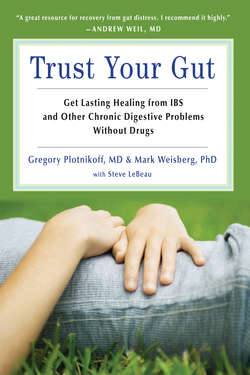Читать книгу Trust Your Gut - Gregory Plotnikoff - Страница 19
На сайте Литреса книга снята с продажи.
Becoming Centered Is a Process
ОглавлениеTelling people to relax doesn't make them relaxed, unless they already know how to relax. If an angry parent is yelling at his son's little league coach during a game and you tell him to relax, he's more likely to punch you than to mellow out. But if you ask a Buddhist monk who has practiced meditation for thirty years to relax, he could easily produce ultra-calm theta waves within a minute or two. Likewise, you can tell a professional opera singer to get centered, and she could become poised with a few deep breaths. But if you told Kevin to get centered, he'd only get more frustrated. He'd be more likely to resemble the angry parent than the Buddhist monk.
Learning how to become centered requires a change of attitude and the acquisition of new skills. It's not a mere intellectual process that only requires thinking—it's an experiential process, an activity. The Olympic gymnast may not be able to verbalize what it is to be centered, but she certainly knows how it feels. Being centered is a psychophysiological state—both physical and emotional. It is also embodied; you can feel it in your gut. If you keep thinking too much and a worrisome dialogue keeps replaying in your head, you're never going to finish your routine.
If you are a gut sufferer and find yourself in a hopeless dead end, the most important step on your path toward centeredness is to learn to trust your gut. This means getting a new attitude to replace the current mixture of hate and fear you have for your gut. As we mentioned earlier, ancient wisdom tells us that the gut is the seat of the emotions and the focal point of human energy. We can all learn much from this idea of the gut as a kind of second brain.
